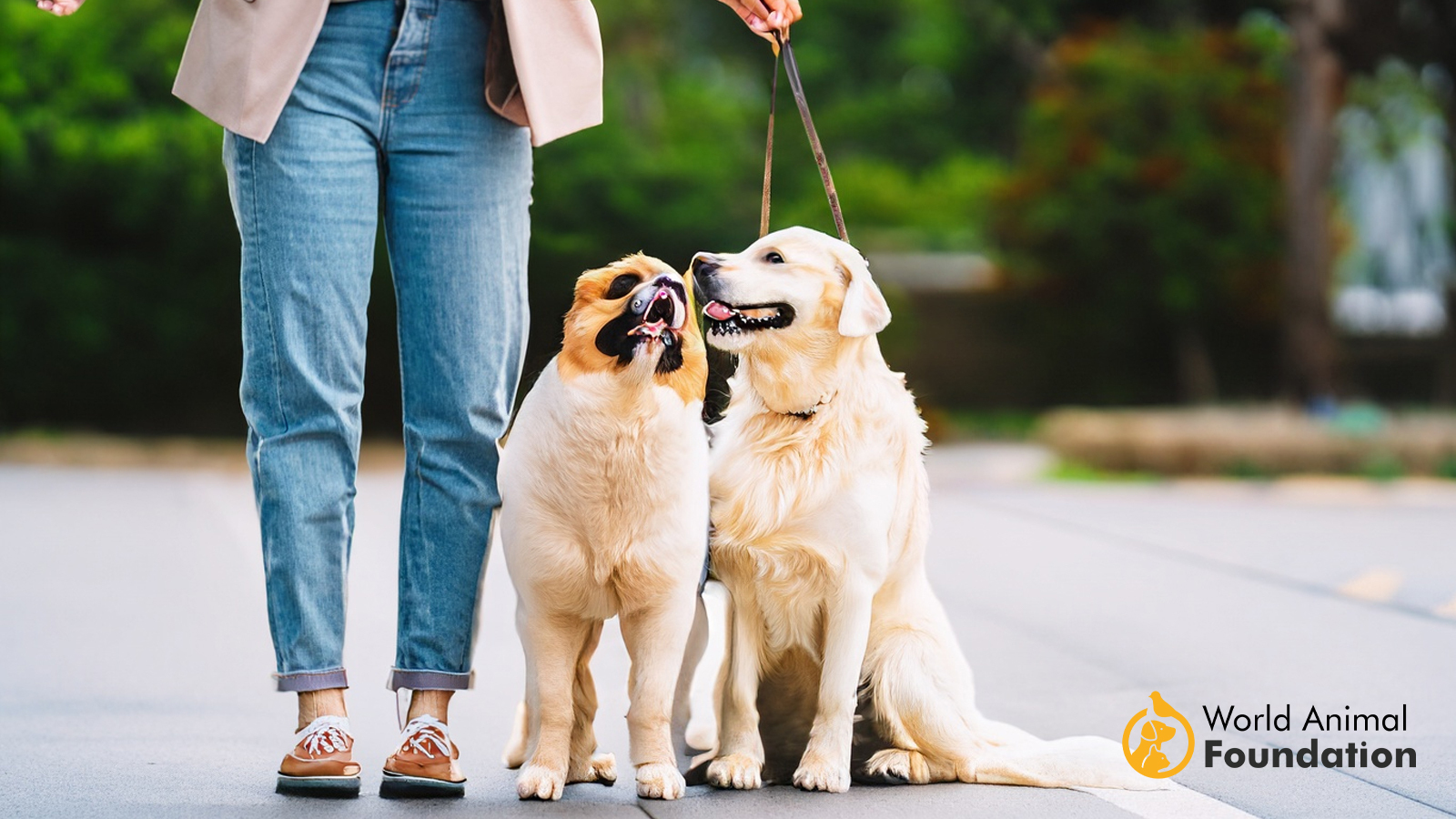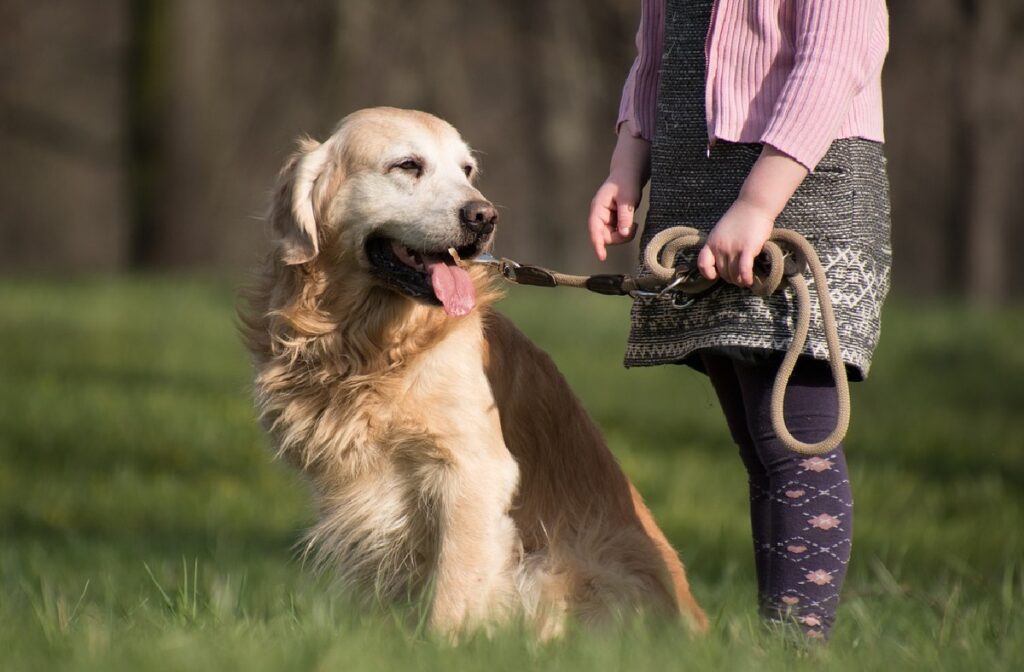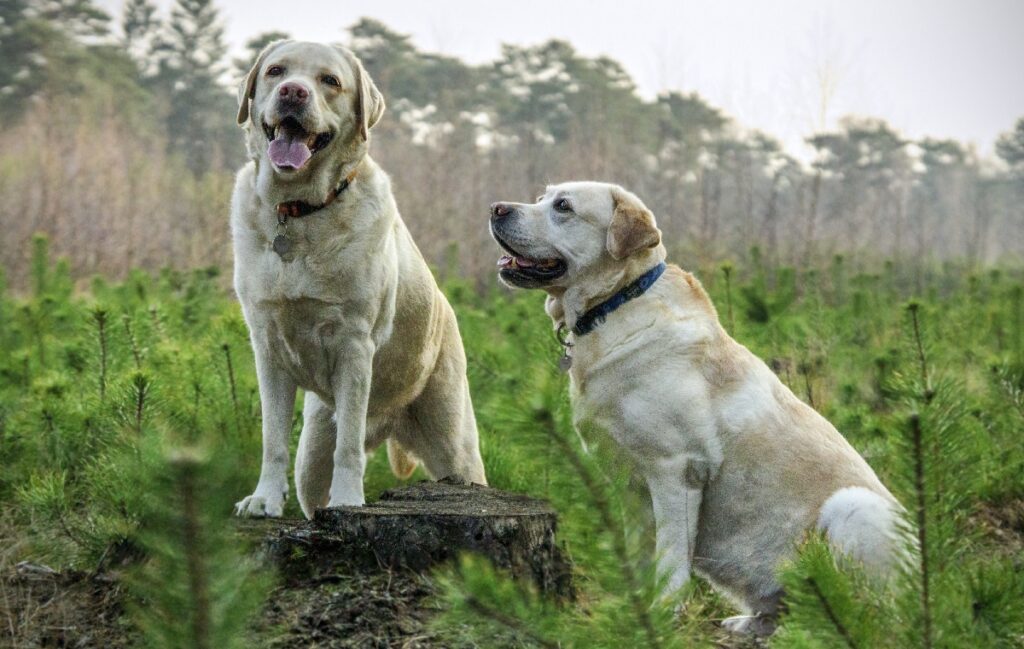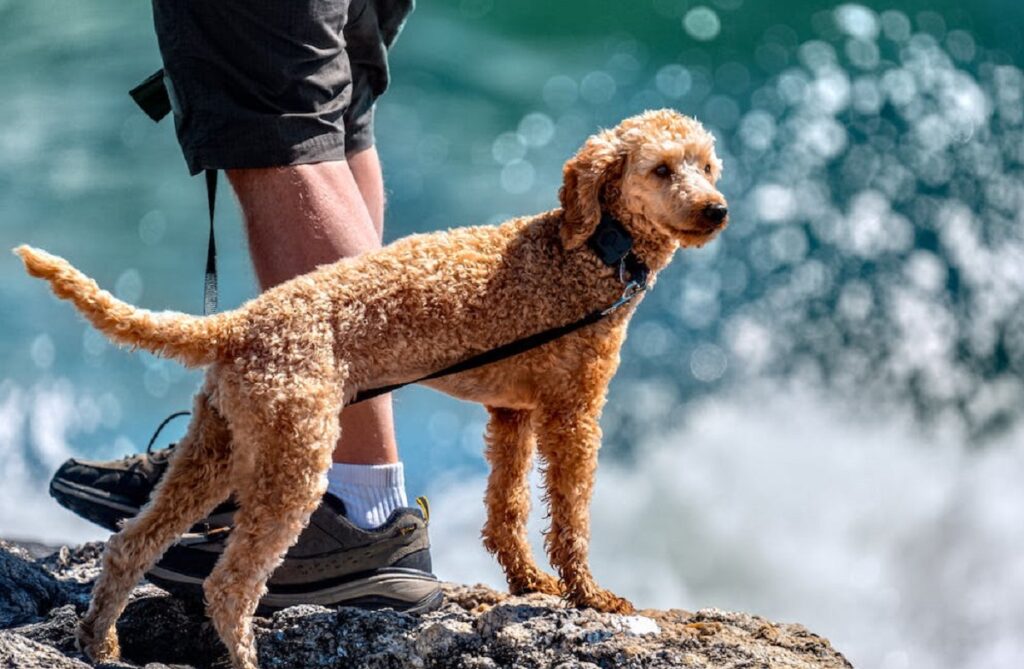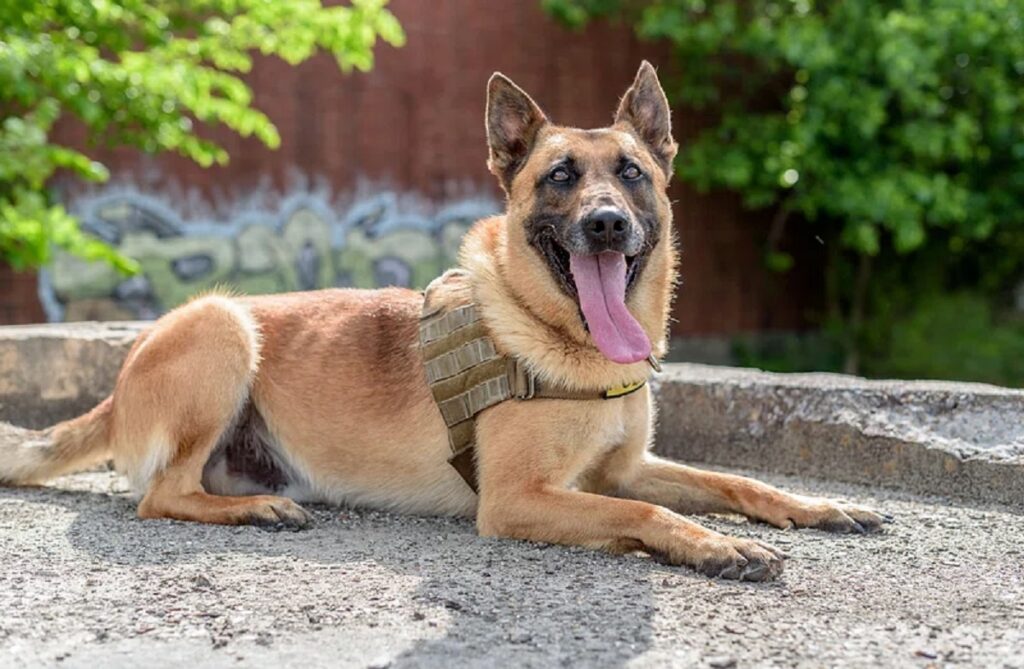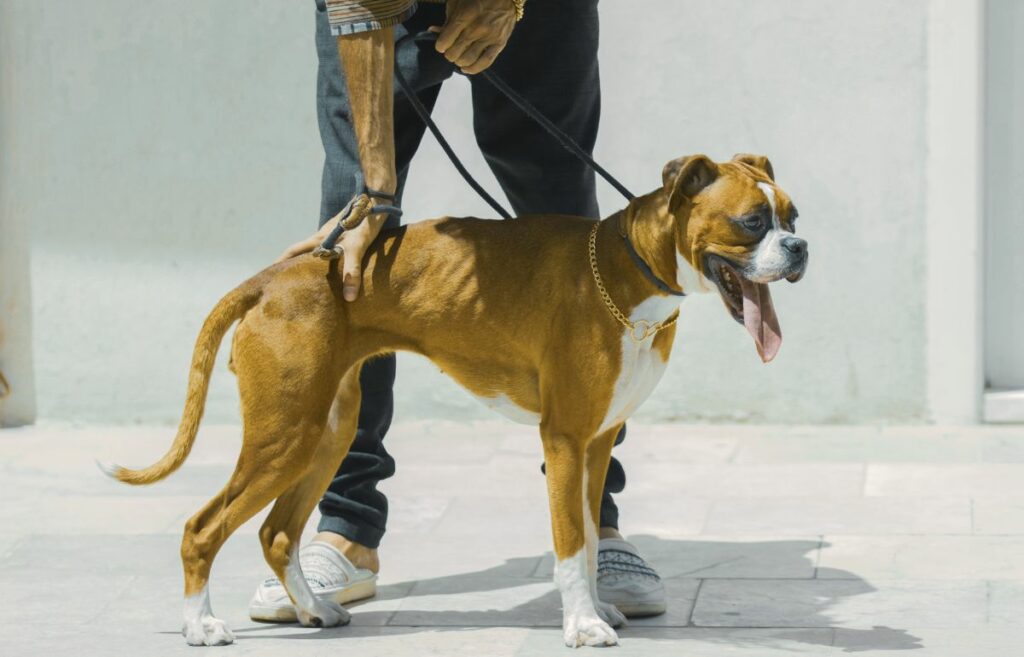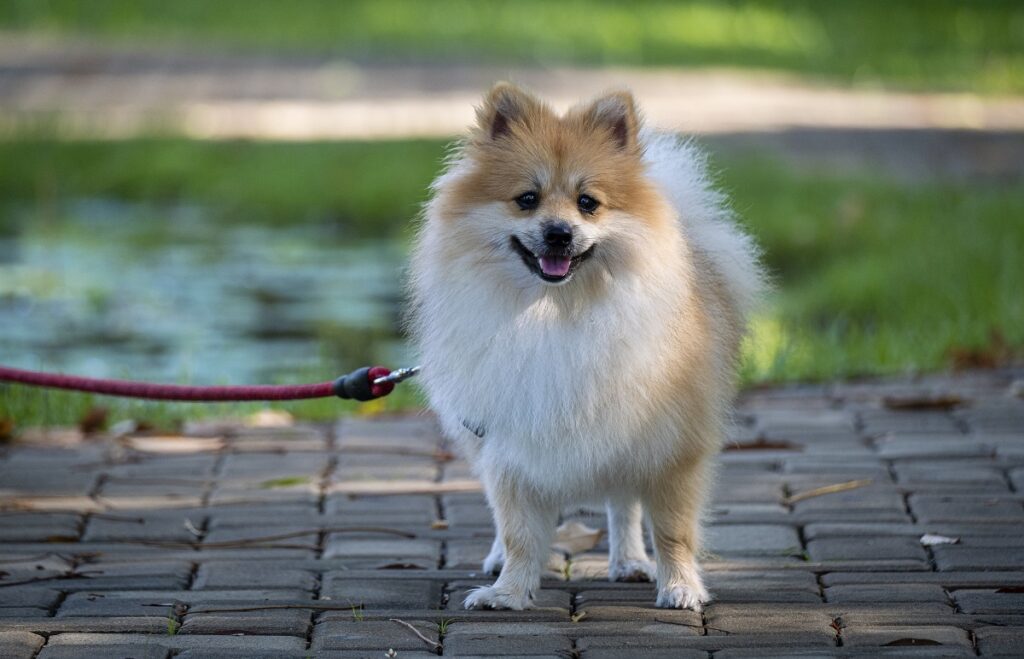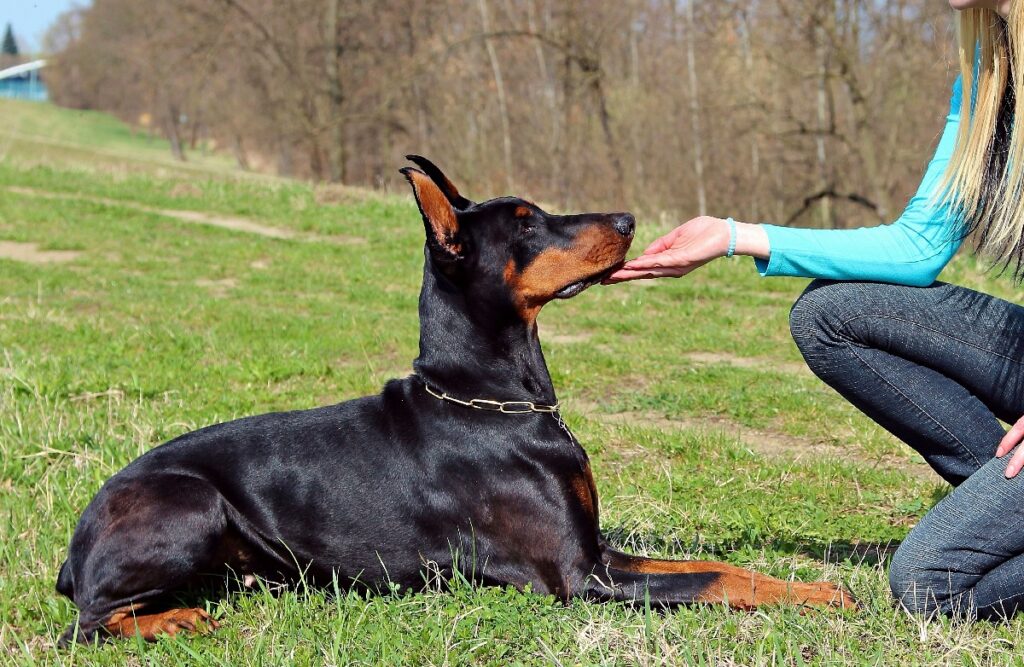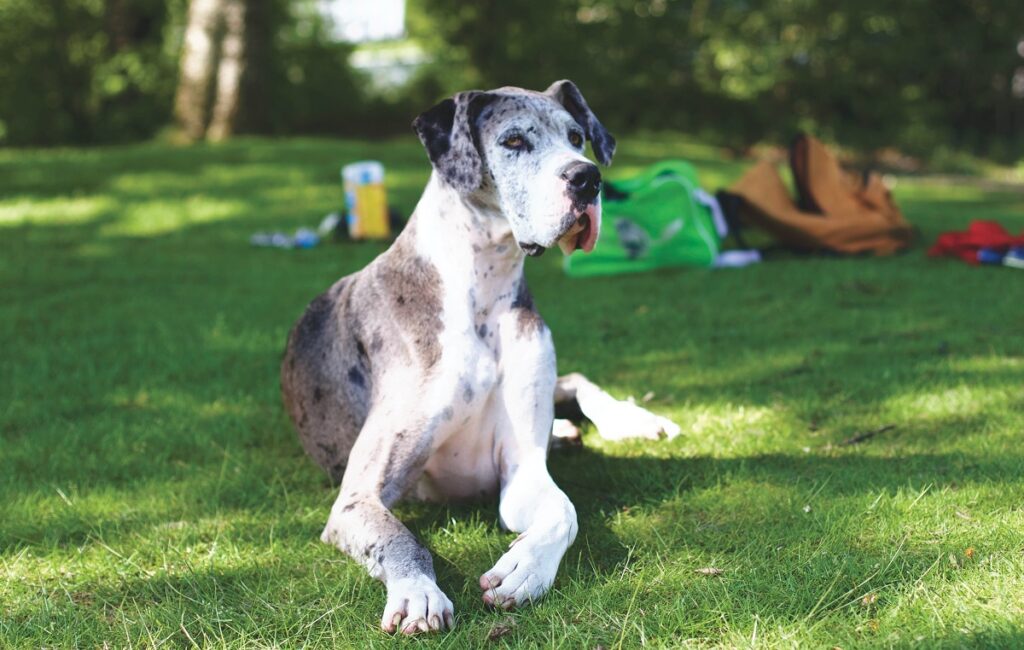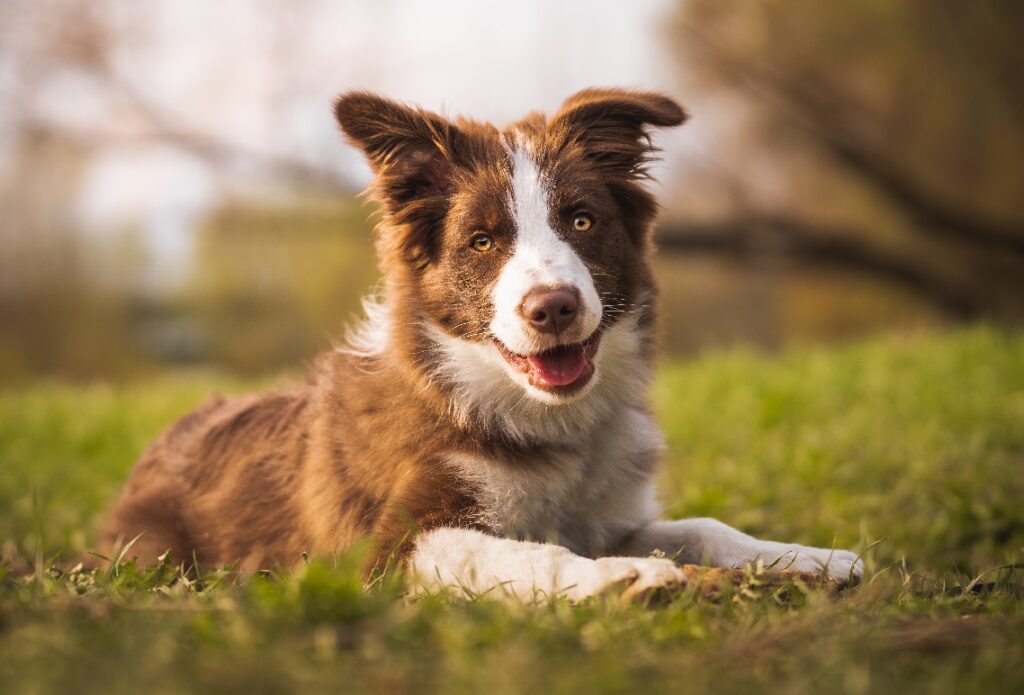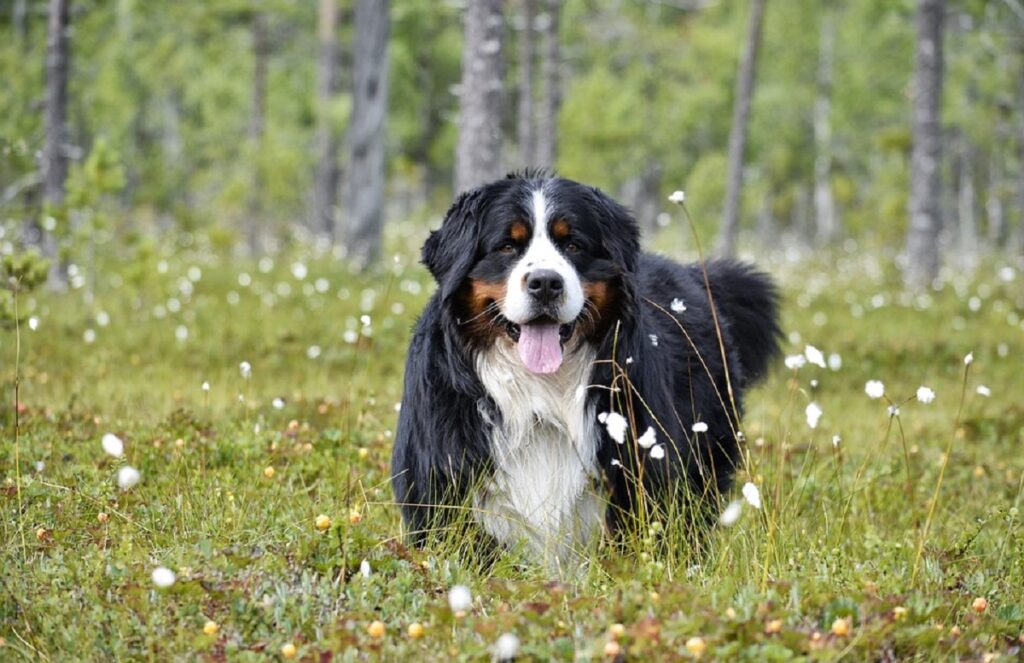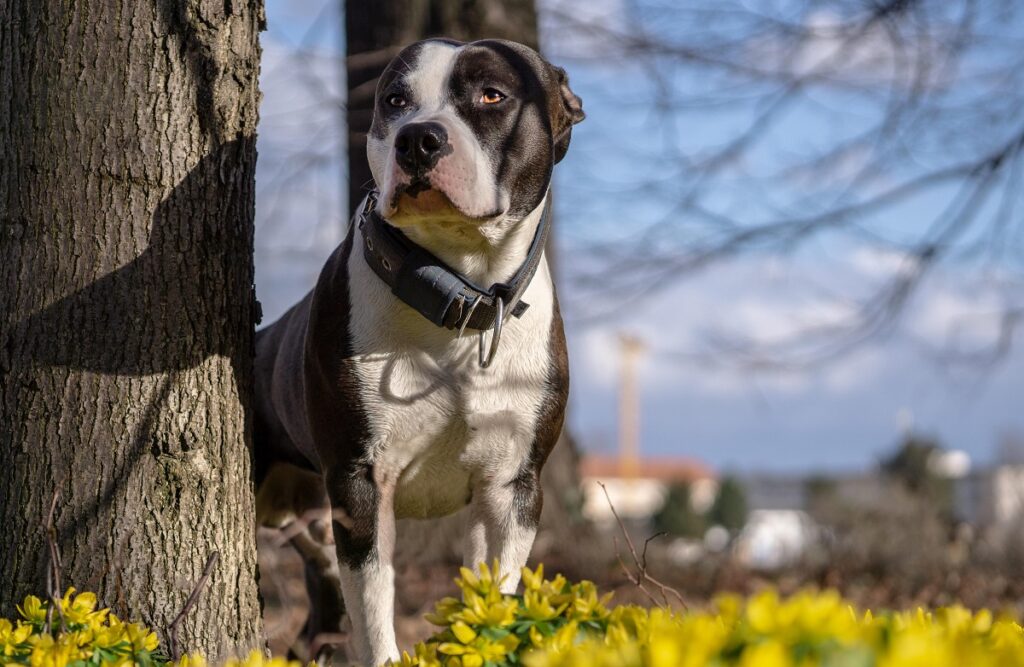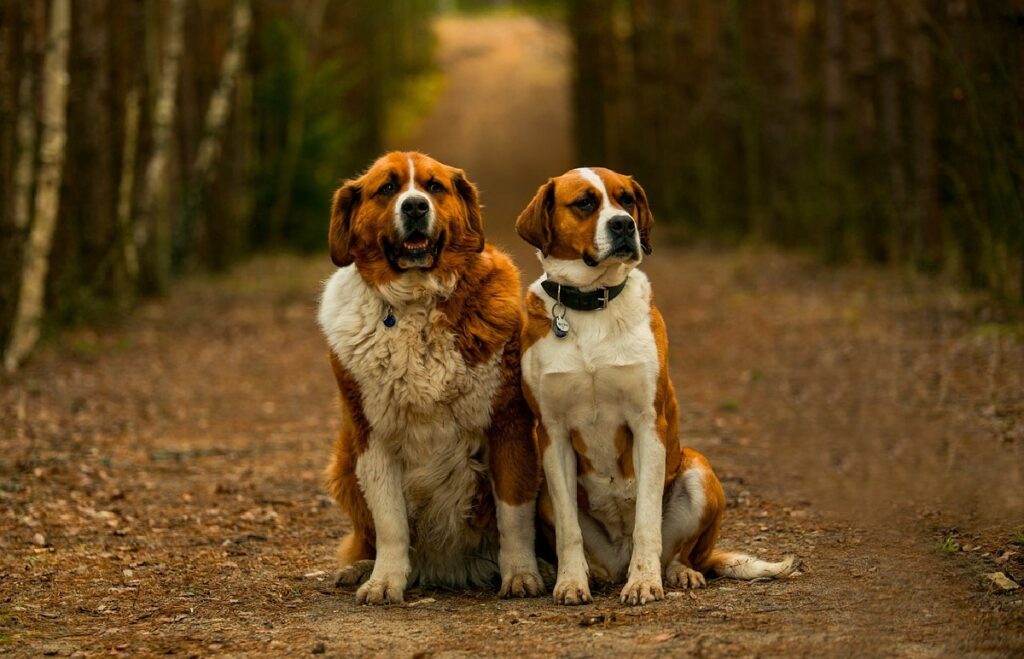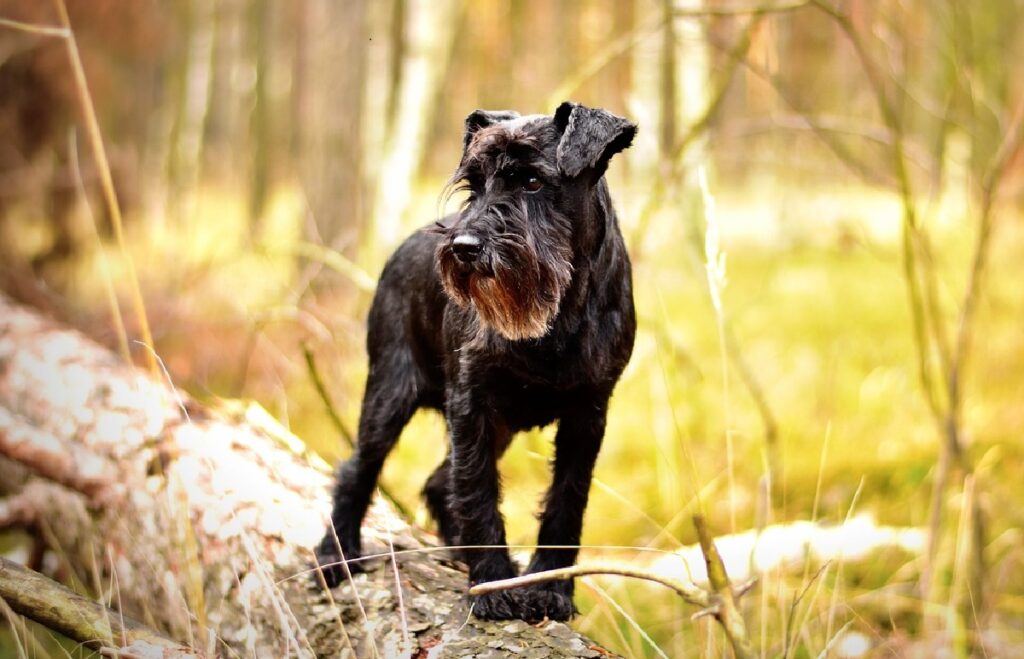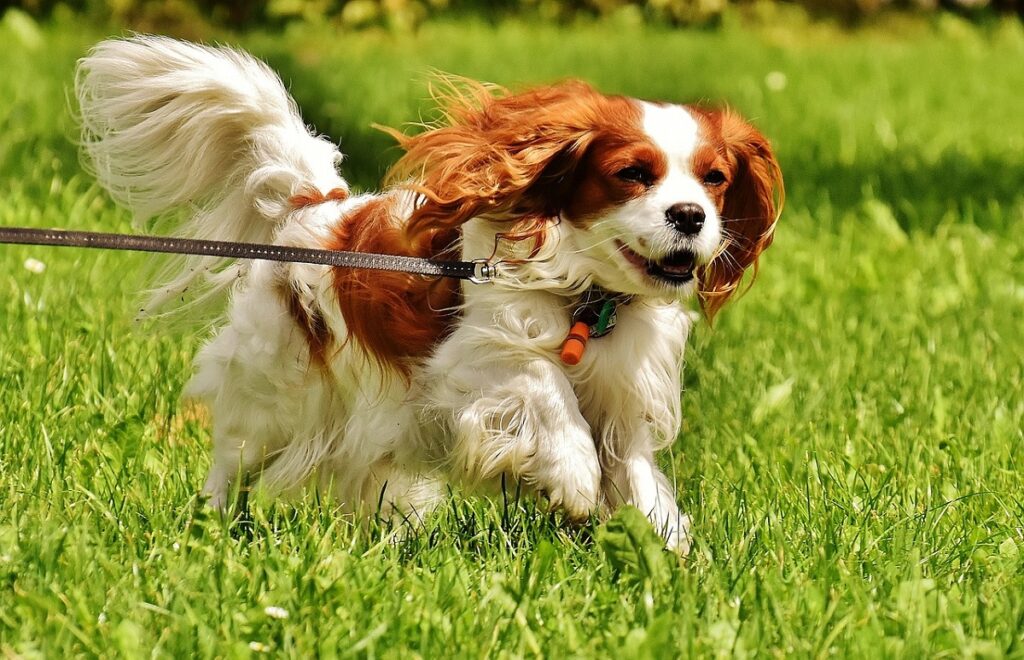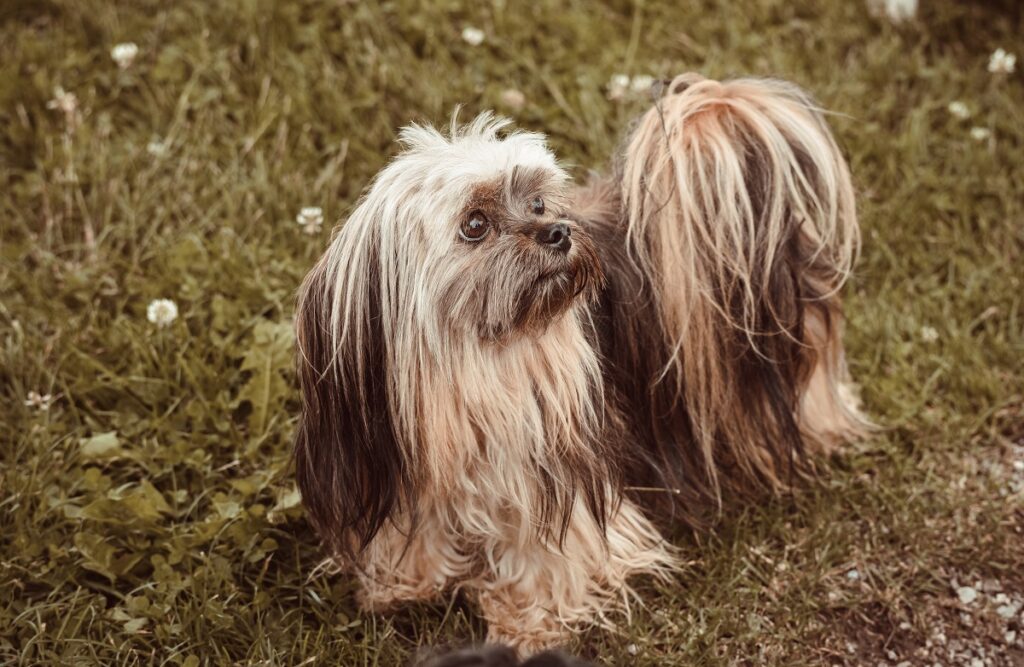Service dogs are incredible partners, providing invaluable support and enhancing the lives of individuals with disabilities. But what breeds excel in this demanding role? Intelligence, trainability, temperament, and physical capabilities all factor into a dog’s suitability. From the ever-popular Labrador Retriever to the less common but equally capable Bernese Mountain Dog, this list explores 14 breeds that frequently rise to the challenge, highlighting their unique strengths and why they’re so often chosen for this life-changing work. Discover the diverse world of service dog breeds and the remarkable contributions they make.
What is a Service Dog?
The Americans with Disabilities Act (ADA) defines a service dog as “a dog that is individually trained to do work or perform tasks for a person with a disability.” Service dogs are trained to assist people with physical or mental disabilities to lead more independent lives.
The difference between a service dog and an emotional support dog is that the latter has no specialized training.
Some people purchase pre-trained, purposely bred canines, while others train their dogs themselves. How much does dog training cost? Service dog training is more expensive than regular training.
Once again, it’s dogs to the rescue. Whether they’re helping us with our needs, working in the armed forces or in a police department, herding, searching and rescuing, or just being adorable pets — canines are always there to assist and love us.
What Are The Different Types of Service Dogs?
- Guide dogs help visually impaired and blind people walk around.
- Hearing dogs alert deaf and hard-of-hearing people to sounds like doorbells, alarm clocks, smoke detectors, oven timers, and telephones. Hearing dogs are trained to nudge their owner and lead them to the sound.
- Mobility dogs assist individuals with physical tasks like walking or pushing wheelchairs. They also pick up things their person drops, press automatic door buttons, retrieve phones or anything out of reach, and people with strength issues or balance problems can hold onto them for support.
- Medical alert dogs are trained to notify their people if they sense low blood sugar, seizures, allergens, etc.
- Psychiatric service dogs help people with post-traumatic stress disorder (PTSD), schizophrenia, obsessive-compulsive disorder, and mental disabilities lead normal lives. Examples of their work are reminding someone to take medication, interrupting repetitive behaviors, and going into a dark room to turn on a light.
Best Service Dog Breeds
The best service dogs must remain focused and calm when they hear loud noises and be able to behave in public spaces. Service dog work requires being highly trainable and very intelligent dogs. And no jumping on people!
1. Golden Retriever
Golden retrievers can do it all! Service dogs need to be socialized in different settings, learn specific tasks fast, and be physically strong to do whatever their humans need them to do. Other traits include being attentive and friendly and not aggressive to people or other animals. Sounds like a Golden Retriever’s profile. They love to retrieve, so they are good at fetching items for their people.
Golden retrievers can serve as guide dogs, therapy dogs, and mobility assistance dogs. Their sweet personality, intelligence, and size make them perfect service dog breeds for people with disabilities.
The Golden retriever is one of the most common service dog breeds as they are great at doing service dog tasks and are easy to train. They are the ideal breed for children’s service dogs because they love kids.
2. Labrador Retriever
Like Goldens, Labrador retrievers are very well suited to a career as a service dog. Both popular breeds are lovable, easy to train, outgoing, and friendly. Labrador retrievers’ service dog traits include calmness, extreme intelligence, a good-natured personality, and being eager to please. Labrador retrievers are beloved pets and service dogs.
Labrador retrievers do fabulous service dog work, whether a guide dog, a therapy dog, or a mobility assistance dog. The Labrador retriever is one of the most popular service dog breeds and does very well in service dog training and completing service dog tasks. They are one of the best dogs to train.
3. Poodle
Standard poodles work as a visual and hearing service dog breed because they are large and strong and can help people with mobility issues. Standard poodle traits that make them excellent service dogs include that they are eager to please, very intelligent, want to learn, love people, friendly, enjoy retrieving, obedient, focused, attentive, and energetic. They also assist people with mental disabilities.
The Standard poodle has a great sense of smell, which enables them to do service dog work by helping people with diabetes and susceptible to allergic reactions. Poodles love mental and physical stimulation, so working is fulfilling for them.
Although they aren’t hypoallergenic, Poodles produce less dander than other dogs, so they are a good fit for people with allergies. They are also very capable dogs.
Poodles of every size are very popular as pets.
4. German Shepherd
German shepherds are affectionate and intelligent. German shepherds learn to be calm, quiet, and patient in busy settings. The German shepherd enjoys socializing and receiving attention, which are great qualities for an excellent service dog. The German shepherd needs plenty of play and daily exercise to help them to be serene while working.
It’s interesting that some police and military canines are also talented service dogs — probably due to intelligence, size, and strength. They are also one of the most popular service dog breeds because they are great at service work and assistant dog work. German Shepherds also have a strong work ethic. German shepherds are one of the easiest dogs to train.
4. Boxer
The boxer is an excellent psychiatric service dog that provides companionship and emotional support and is sensitive and alert. They are friendly and gentle dogs as well as muscular and very trainable. Boxers perform physical tasks like opening doors, retrieving items, and helping people move around. They do need exercise and/or playtime to satisfy their physical and mental needs for stimulation.
Boxers work with people who have panic or anxiety attacks and can give them deep pressure therapy. Their reassuring presence helps their people feel calm. In general, canines are associated with lowering their human blood pressure and making them smile.
Boxers’ short coat makes them a good breed for individuals who suffer from allergies. Boxers are good service dogs and excel at service work. They are also one of the police dog breeds.
5. Pomeranian
Pomeranians are the first small dogs on our list, and they probably wouldn’t be of much assistance to someone needing help with moving around, but they are powerhouses in other areas. They are good service dogs because they can detect subtle changes in glucose and alert their person to an impending seizure if they suffer from epilepsy.
Like their larger counterparts, Pommies are playful, affectionate, energetic, intelligent, trainable, adaptable, charismatic, and up for a challenge. Their superpower is their portability because it’s easy to take them wherever you go. Pommies help deaf and hearing-impaired individuals as well as people with social anxiety disorders and autism.
Never underestimate the power of lap dogs because cuddling with a precious pooch in your lap is very comforting and joyful. I love the big dogs, but they just don’t fit in your lap as well.
6. Doberman Pinscher
Dobies are another military dog breed that are tough enough for the armed services and have the gentle demeanor of service dogs. Dobermans make wonderful psychiatric service dog because they are alert and want to please their people, so they notice if something is wrong immediately.
They are protective and bond with their humans and move swiftly to stop an individual from engaging in self-harm.
Dobies are working dogs, so they enjoy tasks. They don’t shed much, are relaxed, and trainable.
7. Great Dane
Great Danes are gentle, fun, relaxed, and confident. We grew up with Scooby-Doo and Astro from the Jetsons and know we can always depend on the the breed. I actually accepted a job working for someone because she brought her Great Dane to the office (and a poodle and a Portuguese Water Dog!) every day. They are excellent service dogs for individuals with anxiety and depression.
Great Danes love people and animals, are loyal, don’t shed much, enjoy new environments, have enough energy to work but not so hyper that you have to wear them out, and are a big help to anyone with movement issues. Danes are the gentle giants of large dogs. They are very good at adaptive trainability and good at problem-solving.
8. Border Collie
Border collies have many talents that make them fantastic support dogs. Not only are they highly intelligent, but they learn new verbal commands five times faster than other breeds and can be trained to understand hand gestures, body language, and hand signals.
They work hard and are very affectionate, friendly, energetic, and loyal. They are big enough to calm someone with pressure or push a wheelchair.
Border collies alert their people to medical dangers like panic attacks, seizures, or low blood sugar. The border collie can open doors, retrieve/pick things up, and sense anxiety. They will remind forgetful owners to take medications and can even fetch the meds. They can perform service tasks like leading someone to bed or a bathroom and providing physical support or pushing a wheelchair.
9. Bernese Mountain Dog
The Bernese mountain dog is another of the gentle giants. They are loyal, gentle, smart, trainable, and friendly. Because of their size, Bernese mountain dogs can apply deep pressure therapy to comfort their people and stop panic attacks, PTSD symptoms, etc.
They perform complex tasks and can also be trained for high or low blood sugar monitoring or an impending seizure.
Bernese mountain dogs are also a big help if an individual needs physical assistance with mobility service or balance, and they can pull a wheelchair. They are good service animals and can learn to perform specific tasks.
10. American Staffordshire Terrier
The American Staffordshire Terrier is extremely affectionate and bonded to their people, making them very in tune with their guardian’s needs. Staffies are exceptional emotional support dogs and are able to help with depression, anxiety, and other emotional issues. They are beyond loyal, gentle, and devoted, and their calmness is soothing.
In addition, their empathy enables them to know when their people need comfort. American Staffordshire Terriers need exercise and play, which is good for their humans as well. Their other lovely traits are being very trainable, wanting to please, and being fantastic emotional support animals.
11. Saint Bernard
Are you beginning to see a Gentle Giant pattern in service dogs? The fluffy Saint Bernard is affectionate, relaxed, patient, and has a friendly demeanor. They also have emotional intelligence and understand human emotions, so they make excellent service dogs for people with mental wellness and mobility issues. They are easy to train and don’t need too much exercise.
Bernies do blow their thick coat twice a year and need brushing in between. They also drool, but otherwise are wonderful canines and make great service dogs.
12. Miniature Schnauzer
Giant Schnauzers get all the glory as military and police dogs, but the minis make great service dogs. Miniature schnauzers are playful, intelligent, loyal, fun, confident, cheerful, and sweet. The miniature schnauzer makes a great service dog because they are very trainable and obedient and want to please their people.
Their energetic and funny personality makes them good mental wellness service dogs because they spread joy wherever they go. Mini schnauzers love to play and walk, and their people have a good time doing both with them — making them a great service animal.
13. Cavalier King Charles Spaniel
Cavalier King Charles Spaniels are also lapdog service dogs. They are known for their larger-than-life personality and huge hearts. They are cuddly, snuggly, sweet, loving, and exceptionally sweet — making them ideal mental wellness helpers for depressed individuals or those suffering from PTSD. Petting their silky coat is calming.
Because they are quiet, highly intelligent, and very trainable, they make excellent service dogs. They are also one of the most popular dog breeds.
14. Lhasa Apso
The Lhasa Apso is another pint-sized pooch service dog that’s great for mental wellness support. They are a cheerful breed that’s intuitive and friendly, which can be very helpful to people suffering from depression, bipolar disorder, PTSD, anxiety, or other mental health issues.
Dog trainers can help them learn to recognize moods and help their person recover quickly before spiraling downward.
They are highly trainable and uplift their people, making them a fabulous service dog.
What Makes a Good Service Dog
Service dog characteristics include:
Being Able To Focus and Not Become Distracted
Service dogs need to be attentive and always aware of their person’s emotional and physical state. When out in public, they have to be able to ignore everything going on around them.
Energetic
Just like humans with their jobs, working dogs have to have the energy to perform their duties correctly. They need their sleep, healthy food, and water like we do so they can do what is required of them at all times.
Relaxed
Service dogs have to be relaxed so they can think clearly and do what they are supposed to do for their human. Part of their job is keeping their people tranquil. They can’t react if a child is behaving badly or something else in their environment is a potential distraction. Their mission is to preserve tranquility and ensure order and serenity.
Okay With Children Pulling on Them or Strangers Petting Them
Service dogs have to allow strangers to pet them (nicely) and can’t snap at unruly children. Part of their professional position is to “let it go” and focus on their task of assisting their human.
Eager To Please
Canines are naturally eager to please. A good service dog knows their role is to care for their person, who in turn takes care of the pooch (feeding, giving treats, and providing a home for them).
Loves People
Dogs love us, and we love them. That’s why the service dog-human arrangement works. A pooch that enjoys his person and other humans is able to work well as a service dog.
FAQs
Is a Pitbull a Good Service Dog?
Pitbulls are excellent mental wellness service dogs because they are empathetic and form strong bonds with their humans. They are relaxed and notice immediately if their person needs to be comforted.
What Is the Smartest Service Dog?
All the service dogs are very intelligent, but the Border Collie is supposed to be one of the smartest dog breeds.
What Is the Least Common Service Dog Breed?
According to Cadet Pets, the Samoyed would be a great service dog because of their size, dependability, and pleasing nature. They might be one of the best service dogs if given the opportunity.
Conclusion
There are a multitude of intelligent, loving, trainable, strong, and sweet canines who help people with physical disabilities and emotional issues. Those covered in this article are the ones who have been successfully trained for those positions.
Mixed breeds can also be commonly trained as wonderful service dogs, and all service dogs do not have to be specific breeds.
Selecting the right service dog breed depends on individual needs and the specific tasks required. While popular breeds like Golden Retrievers and Labrador Retrievers offer a blend of intelligence, trainability, and temperament, less common choices like Poodles or Bernese Mountain Dogs can also excel. Ultimately, the most important factors are the dog’s individual personality, its aptitude for service work, and a commitment to proper training and socialization. A thoughtful match ensures a successful partnership, fostering independence and enhancing the quality of life for the handler.

